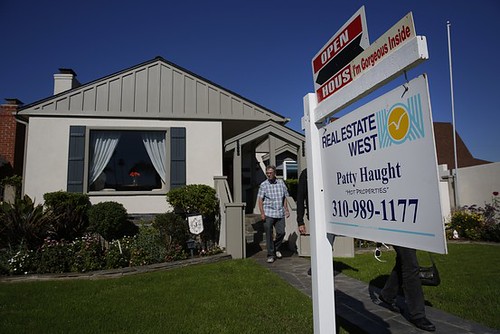Tips on Applying for a Mortgage After a Foreclosure

Recovering from a negative credit event like a foreclosure can take years—seven years in many cases.
A growing number of Americans are reaching that juncture after going into foreclosure early in the housing crisis.
During that seven-year period, gaining access to loans is challenging, particularly in the first two to three years. Getting approved for a car loan or credit card is possible, though the interest rates you’ll be charged will be high. But finding a lender that will give you a mortgage will be a lot harder in most cases.
Foreclosures stay on consumers’ credit reports with the three main credit-reporting firms—Equifax, Experian and TransUnion—for up to seven years and are factored into their FICO credit scores for all of that period. The seven-year period also applies to short sales, settlements with credit-card companies or other lenders, and other negative events. Bankruptcies can stay on for 10 years.
Millions of consumers are feeling the impact of the seven-year timeframe in the wake of foreclosures after job losses, pay cuts or other setbacks from the last downturn. To figure out when a negative mark is due to be dropped, borrowers can check their credit reports from each of the three firms, which they can do free once every 12 months at annualcreditreport.com. The reports will list the year the negative event was recorded.
Here are some pointers on how to increase your chances with mortgage lenders if you have a black mark on your credit record.
Be strategic about your timing
People who have only a few months left before a foreclosure or other negative credit event gets removed from their credit reports could benefit by waiting it out before applying. When lenders check your credit reports, they won’t see that you went through a foreclosure—information that could make them second-guess approving an applicant or charge them a higher interest rate.
However, if another year or so needs to pass until the black mark is removed from your credit reports, and you want to get a mortgage, waiting may not pay off, says John Ulzheimer, president of consumer education at CreditSesame.com, a credit-management site. Mortgage rates may be higher down the road. Even borrowers who don’t have the highest credit scores could end up getting a better interest rate now than if they wait until the foreclosure is removed from their report, he says.
There are some caveats to be aware of. The application form that many lenders require applicants to fill out asks several questions about foreclosure, including whether they’ve ever been through one—information that could make a lender think twice about an applicant. Mortgage giants Fannie Mae and Freddie Mac have their own waiting period, which is as long as seven years after the foreclosure has been completed—which could be a few years after it comes off your credit reports.
Pay down credit-card debt
One of the fastest ways to improve your FICO score is to pay down your credit-card debt, and, if possible, pay it off entirely. A comparison of this debt with the overall credit-card spending limits a borrower has contributes to a category that accounts for 30% of consumers’ FICO scores.
The change can be reflected in your credit report within a month and will quickly improve your score, says Mr. Ulzheimer. FICO scores, developed by Fair Isaac Corp., are the credit scores used in most consumer-lending decisions.
A Fair Isaac analysis of people who had foreclosure proceedings added to their credit reports between October 2007 and October 2008 found that 69% of those borrowers whose FICO scores had recovered and were at least 680 by last October had revolving debt, such as credit-card debt that equaled less than 30% of their total credit-card spending limits. None of them had maxed out credit cards
Hold off on applying for other financing
Signing up for car loans, furniture or appliance financing, and many other loans can hurt an applicant’s chances of getting approved for a mortgage. Lenders review borrowers’ debt compared to their income to determine whether they can get a home loan and its size.
In addition, the FICO score factors in credit inquiries—when lenders check your credit when you apply for a loan or credit card—that are up to 12 months old. The applications you make within the year prior to applying for a mortgage could lower your score.
Avoid other black marks
Make sure to pay your bills on time and to not get into trouble with any loans. Otherwise, you’ll be at risk of starting the seven-year period from scratch and seeing your score drop again if a lender reports a negative credit event to the credit-reporting firms.


